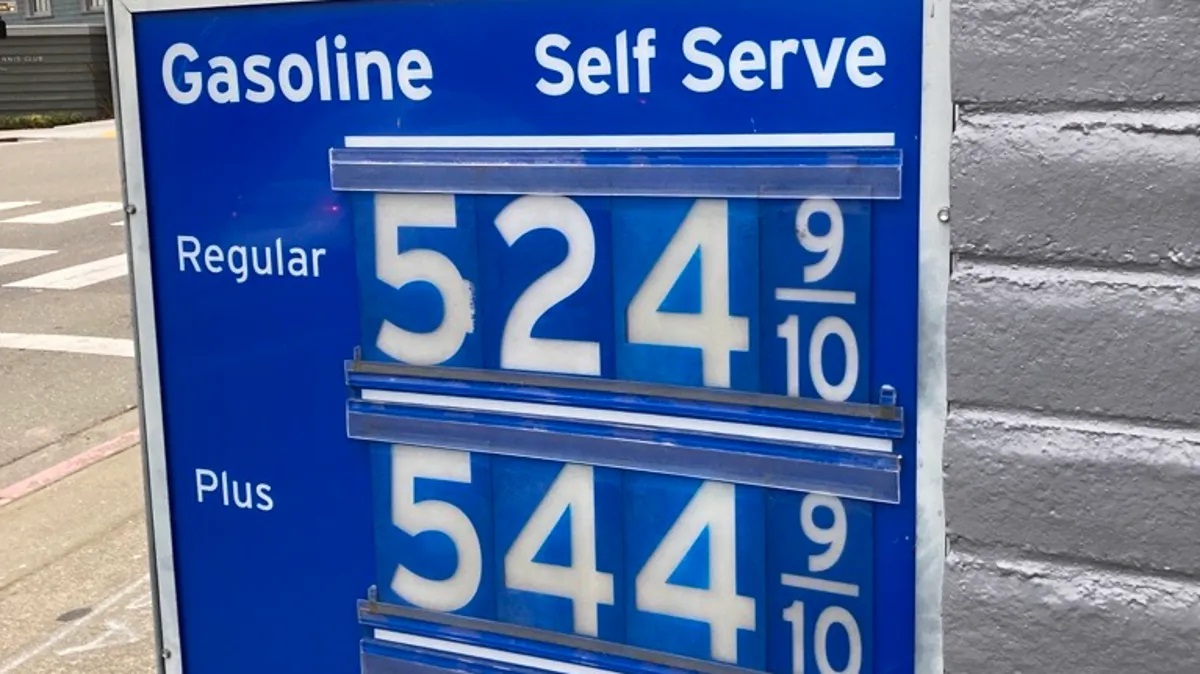Prices for gasoline and diesel are higher than ever before due to the war in Ukraine. Tempting, therefore, the temptation for diesel drivers to fill up their tanks with cheaper salad oil or even cheaper heating oil.
Rapeseed oil, for example, is available in supermarkets for around 1.50 to 1.80 euros per liter – compared to the current price of diesel, this is virtually a bargain with savings of 10 to 25 percent. Fuel oil currently stands at an average of 1.46 euros per liter (as of March 8, 2022).
Already the Verballhornung “fuel oil Ferrari” for fast Diesel passenger car shows that the good old Selbstzünder is hard in the take. But can one really tip vegetable oil into the tank, in order to save money with the momentary horror prices at the gas pump? After all, a liter of vegetable oil, such as rapeseed oil from the supermarket, costs much less than the two to possibly soon 2.50 euros that have to be paid for a liter of diesel fuel at the gas station. The answer is no.
German automobile club ADAC warns against using the “supermarket fuel”: “The biggest problem is the significant difference in viscosity compared to conventional diesel. Vegetable oils lead to starting difficulties and have a negative effect on engine performance and service life.” The auto club goes on to say, “The injection pump and injectors of modern diesel vehicles are not designed for the more viscous vegetable oil, which means combustion is not optimal. Not only is reduced engine performance to be expected, in the medium term the engine and fuel system will be damaged.”

Engine expert warns of possible damage
One of Germany’s best-known diesel engine experts, Professor Thomas Koch of KIT in Karlsruhe, also warns against salad oil in the tank – at least in the vast majority of diesel cars: “The control unit logic leads to emission-relevant incorrect engine settings due to the changed fuel properties. The coking behavior is more critical. The ignition capability of the fuel is significantly worse. Furthermore, impurities are an issue as possible catalyst poisons. Vegetable oils should be chemically treated, either esterified or, even better, hydrogenated. Then they can be excellently added to the fuel in proportions,” Koch told FOCUS Online.

“You can pour just about anything into the OM615”.
It’s a slightly different story with old diesel cars, though. “Their engines work with much lower injection pressures. In addition, these often don’t have sensitive sensors that immediately detect differences in running behavior when the wrong fuel is used. For this reason, older diesel engines with distributor injection pumps run on vegetable oils, at least some of the time. However, the service life of these engines is also limited in the long term,” according to the ADAC’s technology experts.
Such vehicles were therefore sometimes converted to better tolerate the alternative fuel. Certain cars, such as old type 123 Mercedes diesels with OM615 prechamber diesel engines, can certainly be refueled with “oil from Aldi”: “You can pour just about anything into the OM615/616,” says engine developer Thomas Koch.
HVO diesel also manages without fossil oil
However, synthetic fuels or certain biofuels would also be more independent of fossil oil. HVO diesel, for example, is a second-generation biodiesel that is approved by most automakers for use in their diesel engines, such as Audi . One HVO diesel already available is the “FuelMotion Diesel H” fuel. It is based on residual cooking fats and oils; according to the manufacturer, without the use of palm oil. Another advantage of the fuel is that it reduces engine emissions by 90 percent in the CO2 balance and also produces fewer nitrogen oxides. Other options for alternative fuels include so-called e-fuels, which are produced with the help of renewable energies. However, these fuels are not yet available in large quantities and are still expensive – HVO diesel is around 20 to 25 cents higher than the current price of diesel.






